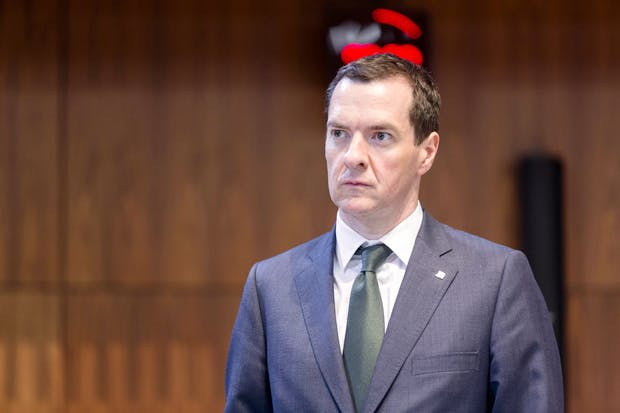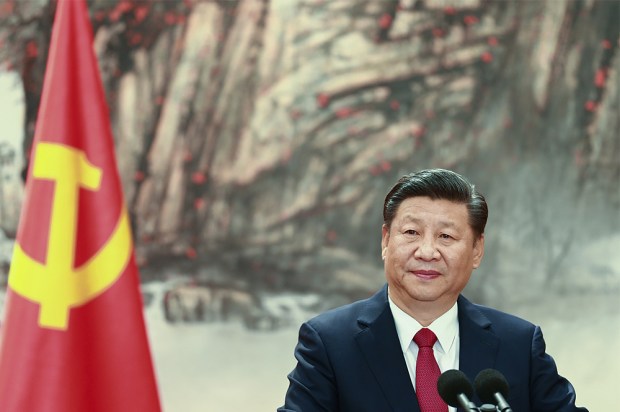What is George Osborne’s Living Wage? Is it a ploy to shift cost from the taxpayer to the employer by reducing in-work benefit claims; or a sop to Tory MPs who were bombarded with angry questions about earnings inequality during the election, as well as a neat way of turning one of Labour’s few effective lines of attack? Or is it a principled act of fairness, acknowledging that the lowest earners bore the brunt of the recent recession? Knowing how the Chancellor operates, it is probably all of the above except the last: he is, as Sir Samuel Brittan once remarked, ‘one of those people who do the right things without knowing why’.
Either way, new research from the Resolution Foundation indicates that the cost of the Living Wage — £7.20 an hour for over-25s from next April, aiming for £9 by 2020 — will be relatively insignificant in the big picture: a 0.6 per cent increase in national wage bills. The Office for Budget Responsibility says the impact on employment will also be marginal: 60,000 jobs lost, against a sustained tide of new ones created. So protests from the CBI and large employers such as the retail group Next and Whitbread, which owns the Costa coffee chain, have gained little traction.
But what’s also clear is that the higher minimum wage will fall hardest on many of those who least deserve an additional state-imposed slice of cost. The impact will be two-and-a-half times bigger for businesses employing fewer than ten people than for the private sector in aggregate.
The Living Wage will barely touch the financial sector, which of course needs no encouragement to pay more. It will hit the hospitality sector most — and while we may not weep for Costa, we should worry about the diversity of local eateries and watering holes. Among other sectors on which the impact will be above average are ‘arts, entertainment and recreation’, ‘agriculture, forestry and fishing’ and ‘activities of households as employers’, presumably meaning home helps, butlers and gardeners.
All this is a reminder that activities which contribute most to quality of life and social cohesion also predominantly involve low-waged work. That’s life, but it’s also a reminder that principled Conservatism should include as much help as possible for small businesses, start-ups, the self-employed, and the flourishing of town centres. The Living Wage is nifty politics, Chancellor, but there’s a lot more work to be done.
Uneasy about oil
‘Biggest slump in non-Opec oil production for 20 years.’ ‘Low oil prices throw North Sea oil into crisis.’ ‘Opec has victory in its sights in oil price war with US shale.’ Those headlines from the weekend press should make us all feel uneasy, even as we enjoy the short-term benefits of Brent Crude trading below $50 a barrel. I would venture to say that ‘victory for Opec’ (led by Saudi Arabia and including Iran, Iraq, the Emirates, Algeria, Venezuela and Nigeria) is never a good thing: it means the western world held to ransom by autocrats and rogues.
The current situation is not all the result of Opec’s tactical refusal to cut production, however. It also reflects market concern at falling Chinese demand, and nervousness over impending US interest rate rises. But an oil price that’s uneconomic for non-Opec producers is ultimately a bad thing in itself. It makes non-Opec Russia a pricklier operator in world affairs. By pushing parts of the US shale extraction industry towards bankruptcy, it not only threatens US growth but knocks out investment in new US wells — as well as indirectly blighting fracking in the UK, whose opponents can add financial non-viability to their litany of objections. In the North Sea, a new report by Oil & Gas UK predicts that at current price levels, capital spending on exploration for new reserves could be cut by two thirds, despite recent tax incentives designed to extend the life of our most important national energy asset.
Some pundits argue the oil price slump is strictly temporary. Hidden among those headlines is an ad for a venture called Black Gold Resources that says ‘$80 Oil by Christmas: Don’t be Fooled by the Mainstream Media’. Maybe; but every month that goes by defers sine die another flow of energy from a source a lot safer than the turbulent Middle East. And that’s a worry.
A decade hence
‘Any Other Business’ has just passed its tenth birthday. The first of these columns mused on corruption in New Orleans (then living through the anarchic first fortnight after Hurricane Katrina) and protectionism in France. It also contained at least two jokes that still make me smile, but no economic predictions. I’m glad about that, because they would surely have been wrong: despite my habitual sharp eye for bankers’ excesses, and some early glimpses of the mad explosion of City derivatives market, I had no idea in October 2005 that the worst financial crisis of my lifetime was three years away.
Likewise, I confess I have no real idea where we might be a decade hence. I don’t know whether we’ll be in or out of the EU, richer or poorer, at war, at peace or still part of a United Kingdom; whether Tesco, BP, BT, Barclays and other corporate stalwarts of this column will still exist; or whether the prime minister will be Boris, Chuka, George, Sajid, Theresa, Tristram or some raging Corbynista we haven’t even heard of yet.
And no one else can tell you any of that either. So the wisest advice a responsible pundit can offer is that we should strive at all times to be resilient and prepared for shocks — personally, corporately and nationally. In that context, and combined with my observations about oil above, another headline this weekend did give one firm inkling of what’s ahead: ‘Rapid pace of plant closures puts power grid at risk, experts warn’. It doesn’t take supernatural forward vision to predict that energy supply will be a huge problem by 2025. If I’m still here — which I certainly don’t predict — it will give me no pleasure to be proved right.
Got something to add? Join the discussion and comment below.
Get 10 issues for just $10
Subscribe to The Spectator Australia today for the next 10 magazine issues, plus full online access, for just $10.














Comments
Don't miss out
Join the conversation with other Spectator Australia readers. Subscribe to leave a comment.
SUBSCRIBEAlready a subscriber? Log in